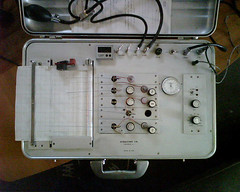Will legal software replace lawyers?
By Kristopher A. Nelson
in
September 2011
400 words / 2 min.
Tweet
Share
Software won’t replace lawyers, but it will reduce the demand for certain routine legal services and raise the complexity of litigation. Those without the software will be at a disadvantage. It will also cut into the work of paralegals. But not lawyers.
Please note that this post is from 2011. Evaluate with care and in light of later events.
An article in Slate claims:
While legal automation will be a boon for those who can’t afford representation, it’s bad news for lawyers. The industry is already in a slump, and law school is no longer seen as a sure path to riches. Because software will allow fewer lawyers to do a lot more work, it’s sure to drive down both price and demand.
My opinion? Software won’t replace lawyers, but it will reduce the demand for certain routine legal services and raise the complexity of litigation. Those without the software will be at a disadvantage. It will also cut into the work of paralegals. But not lawyers.
(Part of this reminds me of the claims in the early 20th century that polygraph machines would replace juries, since machines could judge truth of falsity and revolutionize the entire legal process. That didn’t happen, of course.)
It’s true that being a lawyer today involves a great deal of drudge work, especially at the lower echelons, and certainly eliminating some of the most time-consuming parts of the profession has the potential to reduce the workload. But while computer programs to generate wills have cut back on the demand for bare-bones legal services, the general result, I think, has been to increase the number of written wills, not to reduce the people who consult a lawyer for more complex drafting. Similarly, I expect contract-writing tools to help create more written contracts, not to reduce the important of lawyers who write and review more complex deals. The result will, hopefully, be more routinized, written business processes–but may result in freeing lawyers to spend more time drafting complex documents that exceed the abilities of programs to interpret alone.
The basics of document review can already be outsourced abroad in some cases, and using machine processing is rather similar. It helps with the routine and frees up time for the more complex.
The law is a complex human construction because society is a complex human construction. As long as it stays that way (and as long as people form a society, it will), it will take humans versed in its complexities to manage it fully.

